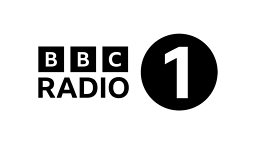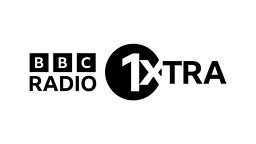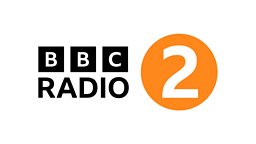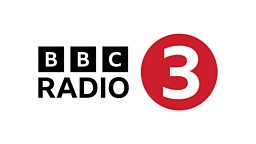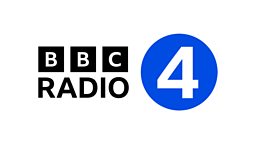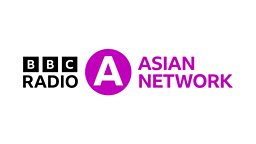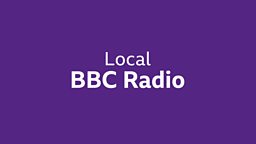About World Service radio
BBC World Service is an international news service available on radio, television and online. It provides impartial news reports and analysis in English and 40 other languages.
Please tell us what you think of our programmes by emailing [email protected]
How BBC World Service is funded
BBC World Service has been funded by the Licence Fee since 1 April, 2014.
This was agreed as part of the UK government's Spending Review in October 2010. Previously, the BBC World Service was funded by a Grant-in-Aid from the Foreign and Commonwealth Office.
How BBC World Service is run
BBC World Service is part of BBC World Service Group.
The BBC World Service Group includes the BBC World Service, BBC Global News Ltd (which comprises the BBC World News Television Channel and bbc.com/news), BBC Monitoring and BBC Media Action(the BBC's international development charity).
Our partners
The BBC World Service is available through a range of radio, TV and online outlets. These relationships enable the BBC to offer a selection of its content to a wider audience. Click here to find partners that carry BBC World Service content in English.
The BBC World Service seeks to work with trusted and high quality providers across the world. For further information on becoming a BBC affiliate please contact us.
Contact
If you would like to make a complaint about any BBC World Service output, please fill in this form.
For general comments, you can contact us by email, or on Facebook or Twitter.
You can tell us what you think of BBC World Service programmes by getting in touch with the radio show Over To You.
You can also help shape the future of international BBC programmes by joining the BBC Global Minds online discussion forum.
Or you could write to us at:
BBC World Service
Audience Relations
Zone C, 7th Floor
Broadcasting House
Portland Place
London
W1A 1AA
Didn't see your answer here?
We hope you found the answer to your question about BBC World Service. If not, please contact us by email.
Frequently Asked Questions - World Service
How can I find out how to listen to BBC World Service in my area?
To listen live online now click here, or you can explore the online schedule.
To find the schedule for short-wave radio broadcasts and FM relays, check our Short Wave Frequencies page and BBC FM Stations page.
How can I listen online and via mobile devices?
BBC World Service is always available to listen to online, via iPlayer Radio on your computer and mobile phone - simply visit www.bbcworldservice.com on your phone's internet browser. Please use the iPlayer Radio help pages to find out more or if you are having any problems listening.
In addition, we have launched a BBC iPlayer Radio app, available on iPhones and Android phones.
How do I listen via satellite?
Arabic TV, Arabic Radio and two of the World Service English radio streams to Europe and the Middle East are available on the Hotbird satellite.
The tuning details for the Hotbird satellite are shown below:
Satellite Eutelsat Hotbird 13B
Satellite Orbital Position 13° East
Transponder Number 94
Downlink Frequency 12.597GHz
Downlink Polarisation Vertical
Forward Error Correction (FEC) 3/4
Symbol rate 27.7Msymbol/s
The Service IDs for the services are as follows:
BBC Arabic TV 14616
BBC Arabic Radio 14617
BBC English (Europe) 14618
BBC English (Middle East) 14619
How can I contact a programme or send in feedback?
You can contact us by email, on Facebook or Twitter. If you hear we are looking for photos or videos for the BBC World Service Instagram page, find out how to do that and our privacy notice here.
You can tell us what you think of BBC World Service programmes by getting in touch with the radio show Over To You.
You can also help shape the future of international BBC progrrammes by joining the BBC Global Minds online discussion forum.
Where can I find the latest BBC World Service press releases?
To find our latest press releases, go to our Media Centre.
Frequently Asked Questions - Advertising on Podcasts
The BBC is putting advertising on podcasts for an international audience. Find out more.
Why is the BBC featuring advertising on podcasts?
Inserting advertising into BBC podcasts outside the UK is part of the BBC’s wider strategy to commercialise audio and radio content made available to non-licence fee paying international audiences.
Will advertising appear in all podcasts?
Most of our English language podcasts will include advertising. The only excluded podcasts will be those for which rights or editorial content mean that advertising should be excluded.
Will UK listeners hear advertising?
No. UK listeners will continue to hear podcasts without advertising as they currently do. We will use the same geo-blocking technology currently used by the BBC to limit services such as iPlayer to UK residents. However, it is possible that a UK resident who travels outside the UK and downloads a podcast locally will hear advertising, just as they would if they visit the BBC News site from abroad. As podcasts are downloaded onto a particular device, they will still hear the advertising after they return to the UK.
Will podcast advertising be heard on all platforms?
Yes, as long as the listener is hearing a podcast. This includes all major podcasting apps including Apple Podcasts, Stitcher, Pocket Casts, Podcast Addict and many more. Podcasts are delivered to listeners via an RSS feed, and as long as the platform is using that feed, it will include the advertising.
Listeners who stream directly on the BBC’s website may not hear advertising, since many of those streams are served using a different technology.
How will we make sure that advertisements are appropriate?
All advertising will be complied by colleagues at BBC Global News Limited (GNL), who will monitor all advertising and ensure that it meets the BBC’s stringent Advertising and Sponsorship Guidelines for BBC Commercial Services. GNL already carry out this service with other advertising on BBC services including display advertising on BBC.com outside the UK. This includes making sure certain categories of advertising are not carried.
What will happen in the event of a major news story? Will we serve advertisements then?
The BBC will remain fully in control of podcast advertising. As with current editorial needs, were a major crisis to unfold, the BBC is able to pull all advertising from all podcasts as necessary, just as it can currently pull advertising from BBC.com pages.
Lots of American podcasts have presenters reading their own ads. Is this something the BBC is going to do?
No. We’re only going to include pre-roll and post-roll advertising, i.e. advertising at the start and the finish. We will not be asking presenters or on-air talent to record any kind of commercial messaging. Indeed rules regarding the delineation of editorial and advertising prevent this.
I downloaded an old podcast but heard a current advertisement. What’s happening?
We are using “dynamic ad insertion”, which means that a current ad is injected into a podcast at the time the podcast is requested. This means that even if you listen to a programme that might be several years old, the advertisement will be contemporaneous to the time that the podcast was downloaded.
Who should I forward any complaints I receive to?
We will be monitoring listener reaction to the advertising, and all comments and complaints should be forwarded to [email protected].
Frequently Asked Questions - Archive
What is the BBC World Service Digital Archive Project?
Before the World Service moved out of its old headquarters, Bush House, thousands of tapes were digitised. The BBC World Service Digital Archive Project put around 27,000 of these digitised programmes onto the website.
Archive Contact Information
Many programmes restored as part of the World Service Digital archive project belong to series which are no longer broadcast, and as such any postal or email addresses, or any other contact details read out during the programme are no longer relevant and your query will not be dealt with. If you wish to contact the BBC, please email us.
Archive Competitions
All competitions mentioned in archive programmes are now closed. Please do not try to enter via any method referenced in the programme, your entry will not count and you may incur a charge in attempting to do so.
Why are there some programmes with out-of-date views on the site?
Both contributor opinions and broadcasting standards have changed over time. The world has changed and the archive reflects how things were seen at the time, both in terms of language and depiction of society.
The language used throughout the archive reflects the tastes and standards at the time of original broadcast, and some of it may not be acceptable now. However, our broadcasts are a record of the BBC's history and as such, it is of historical and cultural interest, which the BBC has not sought to rewrite.
Audio from the BBC World Service archive should be listened to in the context of the past, remembering that it reflects the attitudes and standards of its time - not those of today.
Why does the archive stop in June 2008?
In June 2008 the BBC World Service began to make programmes available online in their current format.
What audio has been made available from the archive?
Not all audio has been restored as part of the BBC World Service archive project. A few programmes have been found and restored from the 1970s and 1980s, a more significant number of programmes from the 1990s and 2000s have been made available.
What is not included in the archive?
Some programmes have not been included for technical reasons - for example the main reason that programmes have not been restored is that the magnetic audio tapes on which programmes were recorded were reused or lost. Other programmes have not been included for legal reasons, and some audio has not been made available for other privacy or editorial policy reasons.
Do you have something to add to the programme information?
Do you know something about a programme that we do not? Can you identify contributors featured in a programme? You can also let us know whether a programme was actually broadcast as scheduled, or share any additional information you have about a programme.
Please email us, it would be great to hear from you. We will not share any contact details or personal information.
Have we got something wrong?
We would very much like to hear from you to let us know about any errors, gaps or anomalies by contacting us, because it helps us make sure we are picking up all the problems. Please email us. We will not share any contact details or personal information.
Are the broadcast times accurate?
Not always, no. The dates on programmes have come from the original audio tape label - these dates may have been a broadcast date, or equally, may have been the date a programme was recorded.
Schedules then, as now, were subject to change. In the early years of BBC broadcasting, technical breakdowns, as well as other difficulties, prompted changes to the published schedule. Throughout the BBC's broadcast history, changes in live broadcasts and major world events have meant that programme details did not always remain accurate. The scheduling of programmes on BBC World Service, for different time zones means that identifying a date of broadcast can be difficult.
For the reasons given above, if a programme in the World Service Archive has been reached via a link on BBC Genome Radio Times listings, the transmission dates may not match.
You can let us know about accurate broadcast dates by emailing us.
How can I complain about something in the archive?
f you would like to make a complaint, please fill in the form on this page.
